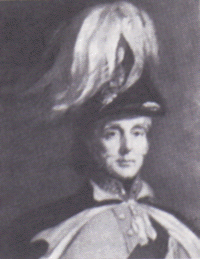 SKC Films Library |
| SKC Films Library >> General and Old World History >> Great Britain >> England >> Political and Military History |
| Arthur Wellesley, the Duke of Wellington hero of the Battle of Waterloo
Arthur Wellesley was born in Dublin, Ireland, in 1769, the fourth son of Garrett Wellesley, Earl of Mornington. He was educated at Eton College and at a military college in France. Wellesley entered the army as an ensign in 73rd Highlanders in 1787, passed rapidly through the lower ranks, became Major of the 33rd, and purchased the Lieutenant-Colonelcy of that regiment in 1793 with money advanced to him by his eldest brother. Wellesley first saw combat in the campaign of 1794-1795, when the British force under the Duke of York was driven out of Holland. Although the British lost the campaign, Wellesley gained a reputation as a brave soldier. In 1796, Wellesley's regiment was sent to India. He was promoted to Colonel by brevet soon after his arrival, and to Major General in 1801. In 1803 he was given command of the British forces in the Mahratta War. In less than four months he had defeated the Mahratta chiefs and firmly established British power in India. Wellesley returned to England in 1805, and was elected to Parliament the following year. Two years later he was appointed Chief Secretary of Ireland. While in this position he worked for new laws that would establish fair rents for tenants. He also laid the foundation for organization of the Irish police. In 1808, Spain revolted against Napoleon, and the British sent troops there to help the Spanish. Wellesley was promoted to Lieutenant General and given command of one of the British divisions fighting in the Iberian Peninsula. Three weeks after landing in Portugal he defeated the French in the Battle of Vimeiro and forced their retreat. In 1809, Wellesley was made commander of all British forces in the Peninsular War. Although he received little help from Spain or Portugal, he led his small army to victory after victory, slowly driving all French forces from the peninsula. In April 1814, he won the Battle of Toulouse, and the British troops were able to enter France. Napoleon abdicated his throne, and the war ended. Upon his return to England, Wellesley was given the title Duke of Wellington. In July 1814, Wellington was appointed Ambassador to France. The following year he represented Great Britain at the Congress of Vienna. He was at Vienna when news arrived that Napoleon had escaped from exile and returned to France. After signing the declaration that named Napoleon "the enemy and disturber of the peace of the world," Wellington took command of the allied forces in The Netherlands. At the subsequent Battle of Waterloo, Wellington rode at the head of his troops and, with Prince Gebhard Blücher's Prussian army, completely crushed Napoleon's power. He remained in France as commander of the army of occupation until 1818. Wellington held various government and diplomatic posts in England until 1827, when he became Commander in Chief of the Army; he resigned the latter post in 1828 to become Prime Minister. Wellington belonged to the Tory Party, but he alienated many in his party by pushing through a Catholic emancipation act that gave the vote to Roman Catholics and removed political liabilities from them. His opposition to a parliamentary reform bill made his government unpopular, and in 1830 he was forced to resign. The Tory Party returned to power in 1834, but Wellington refused the post of Prime Minister. In 1841 he became a member of Sir Robert Peel's cabinet and again served as Commander in Chief of the Army. He retired in 1846. Arthur Wellesley, Duke of Wellington, died on September 14, 1852, and was buried in Saint Paul's Cathedral. SOURCES SEE ALSO |
| SKC Films Library >> General and Old
World History >> Great Britain >> England >> Political and Military
History This page was last updated on September 23, 2017. |
